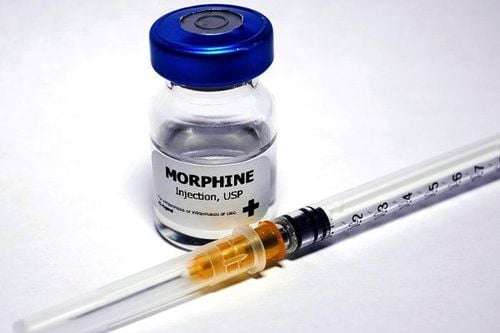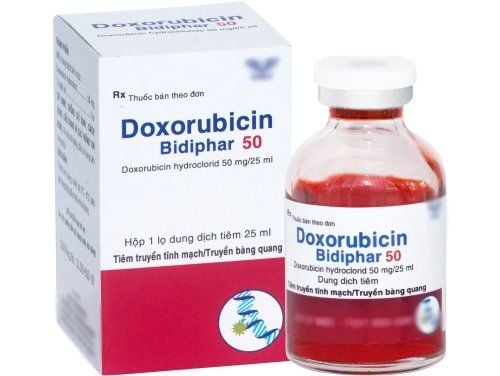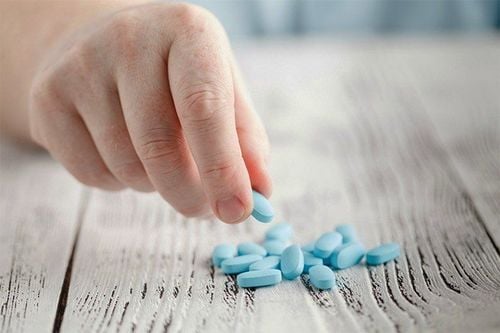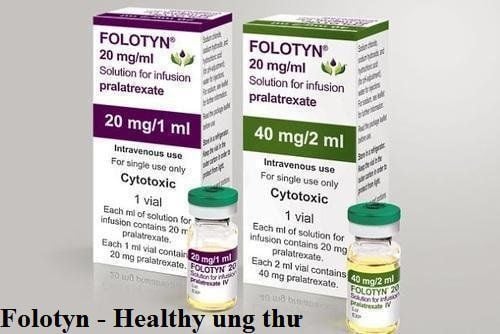This is an automatically translated article.
Cancer treatment with chemotherapy is a common and effective method for many types of malignancies. Cancer chemotherapy has the ability to stop or slow the growth of cancer cells, preventing them from growing and dividing as quickly. Chemotherapy can be used to cure cancer, reduce its chances of recurrence, and stop or slow its growth. In addition, cancer chemotherapy can also be chosen to reduce symptoms, shrink the size of tumors, reduce compression or pain and some other problems.
1. What is cancer chemotherapy?
Chemotherapy is one of the most common cancer treatments. This is a method of using certain drugs to kill cancer cells or prevent them from growing and spreading to other parts of the body. Your doctor may prescribe chemotherapy in combination with surgery or radiation before or after. Patients may also be prescribed new anti-cancer drugs such as targeted therapy along with chemotherapy.
Cancer treatment with chemotherapy can be given in pill or injectable form. Patients often go to the clinic or hospital to use the drug intravenously.
To help the body regain strength and grow new cells in a healthy way, patients can take the drug for several weeks. Chemotherapy drugs can be taken daily, weekly, or monthly. The treatment regimen completely depends on the type of cancer you have and how severe it is.
The treating doctor may prescribe one chemotherapy drug or a combination of different drugs, depending on:
Type of cancer History of malignancy and previous treatments Internal and external diseases other medical conditions such as diabetes, heart disease, kidney disease or liver disease
2. Why does the patient need chemotherapy?
Even if surgery has been done to remove the tumor, there may still be cancer cells left in the body. These cells can grow into new tumors or spread the cancer to other parts of the body.
Cancer chemotherapy helps destroy, shrink or control malignant cells in the body. Medicines can also help treat symptoms caused by cancer, such as pain. You may also be given chemotherapy to shrink the tumor before the surgeon removes it.

Điều trị ung thư bằng hóa trị giúp bác sĩ kiểm soát tế bào ung thư trong người bệnh nhân
3. How chemotherapy works against cancer
The general mechanism of cancer chemotherapy is to damage cells as they divide. At the center of every living cell is a dark spot of cells, called the nucleus. The nucleus is the control center of the cell. It contains chromosomes, which are made up of genes. These genes must be copied correctly each time a cell divides to make 2 new cells. Chemotherapy for cancer damages the genes inside the cell nucleus.
You can combine many different chemotherapy drugs. This would include drugs that damage cells at different stages of cell division. This means there is a greater chance of killing more cells.
Cancer chemotherapy drugs work by a number of different mechanisms. Some drugs damage cells at the point of division. Some types damage cells while they are making copies of all the genes before they divide. Chemotherapy is less likely to damage cells that are at rest, such as most normal cells.
Cancer chemotherapy has the ability to:
Kill both cancer cells and healthy cells Only against cancer cells Stop tumors from proliferating many blood vessels that help them grow Attack the genes of cells cancer so that the cells die and cannot grow into a new tumor
4. Some Common Cancer Chemotherapy Drugs
Currently, there are dozens of chemotherapy drugs that a doctor can prescribe. They are often divided into groups based on how they work and what they are made of. Each class of cancer chemotherapy drugs kills or shrinks malignant cells in a different way.
Some drugs damage the DNA of cancer cells to prevent them from making more copies of themselves. These are called alkylating agents, the oldest type of chemotherapy. They have the potential to treat many different types of cancer, such as leukemia, lymphoma, Hodgkin's disease, multiple myeloma and sarcoma, as well as breast, lung, and ovarian cancers. Some chemotherapy drugs that belong to the class of alkylating agents are cyclophosphamide, melphalan, and temozolomide. However, as they destroy malignant cells, they can also destroy the patient's bone marrow at the same time, possibly causing leukemia years later. To reduce this risk, patients can take the drug in small doses. Another type of alkylating agent with a lower risk of leukemia is carboplatin, cisplatin, or oxaliplatin.
A chemotherapy drug that interferes with the normal metabolism of cells, causing them to stop growing. These drugs are called anti-metabolites. Doctors often use them to treat leukemia and cancers of the breast, ovaries, and intestines. Drugs in this class include 5-fluorouracil, 6-mercaptopurine, cytarabine, gemcitabine, and methotrexate.
Anthracycline chemotherapy attacks the enzymes inside the DNA of cancer cells thereby stopping their division and growth. Cancer chemotherapy with these drugs works for many types of cancer. Some common drugs are actinomycin-D, bleomycin, daunorubicin, and doxorubicin. High doses of the drug may adversely affect the function of the heart or lungs. So the doctor will ask the patient to take them for a short time.
Other cancer chemotherapy drugs, called mitotic inhibitors, stop cancer cells from making more copies of themselves. They can also prevent your body from making proteins that cancer cells need to grow. Doctors may prescribe them for breast and lung cancers as well as types of myeloma, leukemia, and lymphoma. The class of mitotic inhibitors includes docetaxel, estramustine, paclitaxel, and vinblastine.
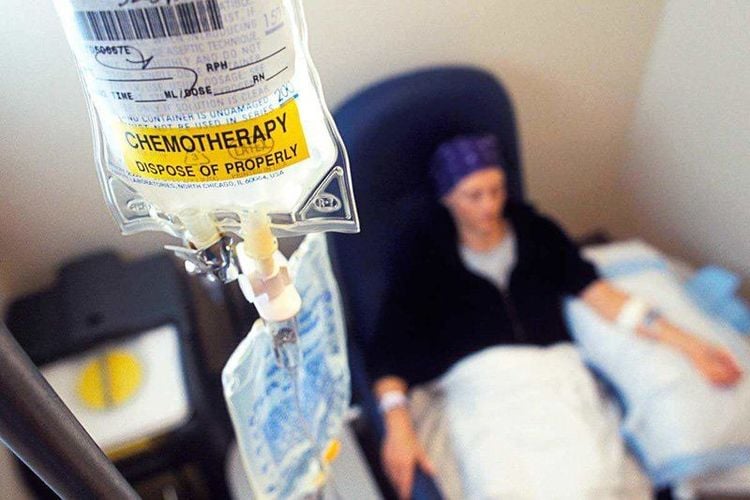
Thuốc hóa trị ung thư được chỉ định bởi bác sĩ chuyên khoa ung bướu
Another chemotherapy drug, called a topoisomerase inhibitor, also destroys enzymes that help cancer cells divide and grow. They treat certain types of leukemia and cancers of the lung, ovary, and intestines. This class of drugs includes etoposide, irinotecan, teniposide, and topotecan. However, some of them can increase the odds of a second type of cancer a few years later.
Steroids are drugs that act like the body's own hormones. They are helpful in treating many types of cancer, and they can help keep you from nausea and vomiting after a round of chemotherapy. Steroids can also prevent allergic reactions to certain medications. Some steroids your doctor may prescribe are prednisone, methylprednisolone, and dexamethasone.
Some other cancer drugs
Chemotherapy is a common cancer treatment, but today, doctors often prescribe other cancer drugs, such as targeted therapy, hormone therapy and cancer drugs.
Unlike cancer chemotherapy, these drugs have the advantage of attacking only malignant cells without affecting other healthy cells of the body. That means they cause fewer side effects. Your doctor may advise you to use them with other chemotherapy drugs or to take them alone.
5. How do I know if cancer chemotherapy is working?
The specialist will be the person responsible for monitoring the patient's body response during and after treatment.
Doctors will look for signs that the tumor is shrinking or growing larger. They use tests such as physical exams, blood tests, or diagnostic imaging facilities such as X-rays.
If chemotherapy doesn't seem to be working, your doctor may change the dose of another drug or combine other treatments.
6. Some side effects when treating cancer with chemotherapy
The fact that chemotherapy drugs kill dividing cells helps explain why chemotherapy causes side effects. It affects healthy body tissues where cells are constantly growing and dividing, such as:
Hair: always growing Bone marrow: where blood cells are constantly produced Skin and mucous membranes The lining of your digestive system: which is constantly renewing itself. Because these tissues have dividing cells, chemotherapy can also damage them. But normal cells can replace or repair healthy cells damaged by chemotherapy.
Therefore, damage to other healthy cells in the body from cancer chemotherapy usually does not last long. Most side effects go away after treatment ends. Some side effects such as fatigue or diarrhea may only occur on the days of taking the medicine.
The most common side effects are fatigue and feeling exhausted. You can prepare for this side effect by:
Asking someone to take you to a medical facility during your cancer treatment with chemotherapy Plan to rest the day of chemotherapy and the day after Ask someone to help prepare meals and take care of the children on the day of chemotherapy and at least one day after chemotherapy
Please dial HOTLINE for more information or register for an appointment HERE. Download MyVinmec app to make appointments faster and to manage your bookings easily.
References: cancer.gov, cancer.ne, webmd.com



